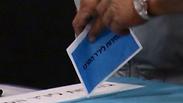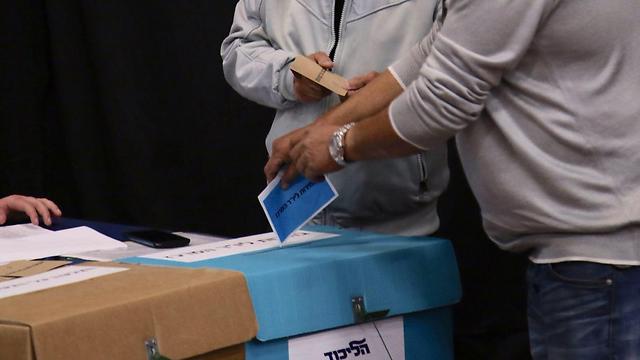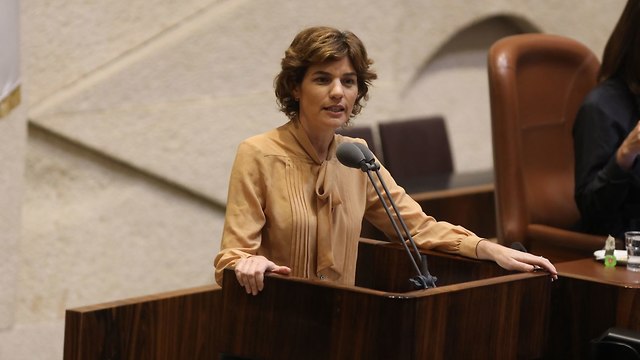
Primary elections: Corrupt cronyism or democratic defender?
Not all Israeli political parties choose their Knesset hopefuls by polling their members, some rely on the whim of the party leadership, a phenomenon that is becoming increasingly popular.
Israel's various political parties will have to submit their Knesset lists by February 21 for the upcoming general election, and veteran and fresh politicians alike are doing all they can to secure a spot as high up on the list as possible. Even though some parties still hold primary elections among their members to determine the order of the list, this democratic method is becoming less and less common in newer parties.
This system of holding internal elections within the party, which is known as "primaries," hasn't always been part of the Israeli democratic process. Since the establishment of the state, the most common methods for allocating spots on the Knesset list was an "organizing committee." The committee included a small number of senior officials who determined the order of the list and brought it to the symbolic approval at the party convention.
The first to abandon the organizing committee method was the Democratic Movement for Change (Dash in Hebrew), which upon its establishment in 1977 decided to entrust the selection of the list to all members of the party. This method gained traction in the 1990s, when the two largest parties—Likud and Labor—also canceled their organizing committees. Some of the parties entrusted the selection to all party members, while some entrusted it to large bodies that represented the members within the party, such as the central committee.
The inspiration for the primaries came from the United States, where registered party voters from every county participate in electing the candidate to run against the rival party.
Introducing the primaries in Israel was at first seen as a move to bolster democracy by giving the power to the masses at the expense of the organizing committees, which were always seen as corrupt. At their height, all four of Israel's largest parties held primaries ahead of the 1996 Knesset elections that saw Benjamin Netanyahu become prime minister for the first time.
But later, the primaries fell from grace. The political machine and illegal donations to candidates highlighted the significant downsides to the system and tainted it in the eyes of many.
When the Israel Resilience Party was founded last month, the party statute was released and it determines, among other things, that the party's Knesset list will be determined exclusively by its chairman Benny Gantz, and will not be chosen in primary elections. And so Israel Resilience joins a growing group of young parties that are foregoing an internal democratic process of primaries, and leaving the selection exclusively to the chairman.

Among the parties that don't hold primaries are Yair Lapid's Yesh Atid; Tzipi Livni's Hatnua; Moshe Kahlon's Kulanu; and Orly Levy-Abekasis's Gesher. "These are parties that are very much dependent upon their leader, and will likely not last without them. That is why they are giving the leaders the full authority to determine the list's makeup," says Ofer Kenig of the Israel Democracy Institute.
Kenig points to a steep drop in the number of Knesset members who were democratically elected by party members. "Ten years ago, about two thirds of MKs were elected on behalf of parties that had some form of primaries. If the current polls are any indication, in the next Knesset that number will drop by almost a half," he said.
The clear starter of this trend, in which the party leader can exclusively select the Knesset list, is Yesh Atid, which was formed ahead of the 2013 elections. Commenting on the matter in the past, Yair Lapid said: "Primaries is something that corrupts Israeli politics. It gives all sorts of really corrupt interest groups the ability to manage the politicians. This won't happen in our party."
Dr. Kenig believes this trend is problematic. "We wouldn't want to eventually see an entire Knesset with all 120 of its members selected only by party leaders," he says.
Orly Levy-Abekasis's Gesher Party also won't hold primaries, but the party supports changing the electoral system to allow every citizen have a say in the members of the party they vote for. Under this system, each party's Knesset list would only be determined on Election Day, by those who voted for that party. The voter who casts a ballot for a party would be able to indicate on the other side of the ballot paper which candidates they support, thereby influencing the makeup of the party in parliament.
Even though this method may sound strange to Israelis, it is somewhat common around the world, and is known as "open list" or "more open list." It is used in many countries, including the Netherlands, Sweden and Slovakia.
A development that took place during the last Knesset's term could have a significant effect on party primaries. The Knesset decided that candidates in the primaries will receive a grant or a loan from the state to fund their campaign. This will spare them the need to raise funds from supporters and rich donors. Since the new law only comes into effect in these coming elections, it's still too soon to determine how it will affect the primaries and their image.
Facing the wave of parties that have decided to forego primary elections, there are still parties who are going the other way. For example, the Meretz Party will have primaries that will be decided by all of its registered members for the first time since 1996, after more than two decades of the party convention selecting the list.
The Zehut Party, founded by former Likud MK Moshe Feiglin, has open primaries, allowing every citizen to choose the order of the candidates through the party's website. The Yashar Party, which promotes direct democracy, will also hold primaries online.
These parties join Likud and Labor, which will once again hold primaries to determine their party lists ahead of the April 9 general elections.












